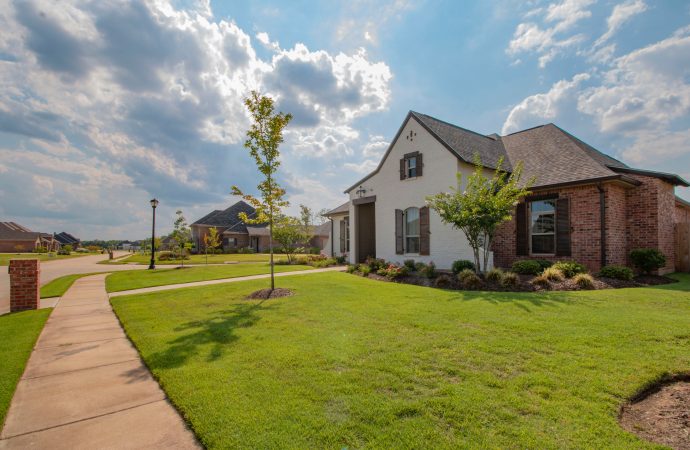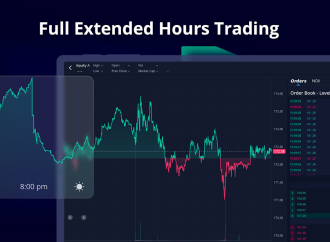The impact of climate change is not just limited to the environment. It’s rapidly changing the dynamics of the real estate market as well. From rising sea levels and extreme weather conditions to wildfires and droughts, these threats are forcing property owners, buyers, and sellers to rethink their decisions in terms of location, pricing, and
The impact of climate change is not just limited to the environment. It’s rapidly changing the dynamics of the real estate market as well. From rising sea levels and extreme weather conditions to wildfires and droughts, these threats are forcing property owners, buyers, and sellers to rethink their decisions in terms of location, pricing, and investment potential. In this blog post, we will explore how climate change is affecting real estate prices across different regions worldwide and provide insights on what homeowners can do to protect their investments amidst such uncertainties. So buckle up as we take you through a rollercoaster ride that promises to be both informative and thought-provoking!
How climate change is affecting real estate prices
Climate change is already having an impact on real estate prices across the United States. In some coastal areas, property values are rising as people seek to escape the effects of extreme weather and sea level rise. In other parts of the country, where floods and droughts are becoming more common, prices are falling as buyers become less willing to take on the risk of severe weather events.
The most significant impact of climate change on real estate prices is likely to be felt in coastal areas, where properties are at risk of flooding and damage from hurricanes and other storms. In recent years, we have seen a number of major hurricanes cause widespread damage to communities in Florida, Texas, and Louisiana. As the frequency and severity of these storms increases, so too will the costs of rebuilding after them. This will lead to higher insurance premiums and taxes, as well as increased maintenance costs for homes and businesses located in vulnerable areas.
In addition to the direct impacts of extreme weather events, climate change is also causing sea levels to rise. This is leading to increased flooding in low-lying areas, such as parts of New York City and Miami Beach. As a result, properties located in these areas are becoming increasingly valuable, as people seek out places that are less likely to be impacted by flooding.
While climate change is currently having a mixed impact on real estate prices across the United States, it is likely that its overall effect will be negative in the long term. As the effects of climate change
The most affected areas in the US
The effects of climate change are already being felt by many across the United States. Rising temperatures and sea levels, more extreme weather events, and shifting precipitation patterns are all impacting real estate prices in a variety of ways.
In terms of direct impacts from extreme weather events, coastal areas are obviously among the most vulnerable. hurricanes and other severe storms can cause extensive damage to property, which can lead to higher insurance rates and rebuilding costs, as well as decreased demand for beachfront properties.Wildfires are another significant threat to homes and businesses in certain regions of the country, especially those in the Western US. Not only can fires destroy structures, but they also create health risks from air pollution and can make it difficult for people to access insurance coverage.
Heat waves are another type of weather event that is expected to become more common and intense due to climate change. This could impact real estate prices in a number of ways, from making homes less comfortable to live in to increasing the risk of wildfires. In addition, periods of extended drought can lead to water shortages, which could impact both commercial and residential properties.
Shifting precipitation patterns can also have a big impact on real estate prices. For example, areas that were once considered prime agricultural land may become much less productive if there is less rainfall. This could lead to lower land values and fewer buyers interested in purchasing these types of properties. In urban areas, increased flooding from heavy rains can damage buildings and infrastructure, making properties less valuable and
Why this is happening
There are a few reasons why climate change is affecting real estate prices. One reason is that as the Earth gets warmer, sea levels are rising. This means that properties near the coast are at risk of flooding and damage from storms. As a result, these properties are becoming less desirable and their prices are dropping.
Another reason why climate change is affecting real estate prices is that extreme weather events are becoming more common. Heat waves, droughts, and wildfires can all damage homes and make them less valuable. People are also starting to feel the effects of climate change in their health, which is another factor that can affect property values.
Lastly, as awareness of the issue of climate change grows, so does the importance of sustainability. Many people are now looking for homes that have green features or are located in sustainable communities. This preference is likely to continue to grow, which could cause prices for sustainable properties to increase.
What to do if your home is in an affected area
If your home is located in an area that is experiencing the effects of climate change, there are several things you can do to protect your investment. Here are a few tips:
1. Monitor the weather and be prepared for extreme conditions.
2. Keep an eye on your home’s foundation, roof, and plumbing to make sure they can withstand extreme weather conditions.
3. Make sure your insurance policy covers damage from natural disasters such as floods or wildfires.
4. Stay informed about local evacuation routes and plans in case you need to leave your home quickly.
5. Consider investing in green infrastructure such as solar panels or rain barrels to help reduce your carbon footprint and save money on utilities.
How to prevent your home from being affected
There are a few things that homeowners can do to help prevent their home from being affected by climate change. One is to make sure that their home is well-insulated. This will help to keep the heat in during the winter and cool in during the summer. Another thing homeowners can do is to install energy-efficient windows. These will help to keep the heat out in the summer and the cold out in the winter. Finally, homeowners should make sure that their HVAC system is properly maintained. This will help to ensure that it is running efficiently and not using more energy than necessary.
Conclusion
In conclusion, climate change is having a real and measurable effect on the housing market. As temperatures rise and extreme weather becomes more common, buyers are turning away from vulnerable homes in coastal areas, while properties that offer protection against the elements are becoming increasingly desirable. While it remains to be seen what further effects climate change will have on real estate prices over time, one thing is certain; this phenomenon is here to stay and those looking to invest in property should take steps now to prepare for its future repercussions.





















Leave a Comment
Your email address will not be published. Required fields are marked with *